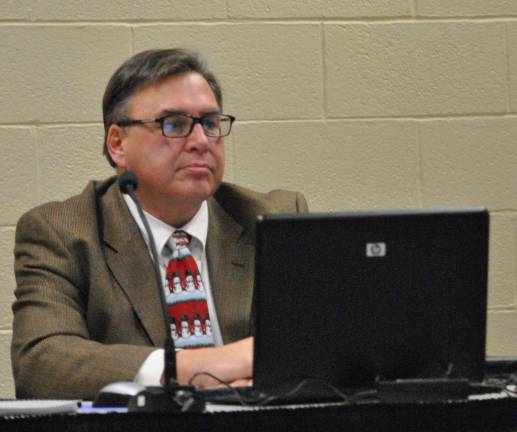School owes retirement system $100 million

By Anya Tikka
MILFORD — The Delaware Valley School District had some good news and some bad news to report at its Dec. 11 meeting.
“We have a clean audit — again,” said Jack Fisher, the budget, finance and audit chair of the Delaware Valley School board. “It happens here every year, but it’s not by small chance. It’s a lot of work. There are no findings, and no recommendations.”
He said the district's "stable and strong balance sheet" earned DV a good Aa2 Moody’s rating, which qualifies the district for low interest rates. But, he continued, “There is some really ugly news.”
At the end of the current fiscal year, he said, the district will owe the Public School Employees' Retirement System $100 million.
"I can’t emphasize it enough that we need to keep putting money away,” Fisher said.
The amount owed is “almost insurmountable” for a small, rural school district, he said. “So we need to put money away piece by piece by piece. To give you an idea of what that means, if it’s for 20 years, for the last 20 years, we’ve underfunded the budget by $5 million a year, and that is going to continue to grow as we go forward. As that grows, we continue to put money away for it. We need to do more. I was hoping for $10 million dollars aside."
At some point, what the district recovers will be greater than what it contributes. But when that will happen is not certain.
“There’s been a 340 percent increase in the amount that we have to pay to the program, and that doesn’t cover it,” Fisher said. In order to get where the district needs to be, he said, “We need to continue to put away a lot more.”
How much will the next budget increase? "I think we need to seriously consider the exemption option this year," he said.
Fisher urged board members to talk to Superintendent John Bell or business manager Bill Hessling about their concerns.
“We have some work to do by the end of January,” said Fisher. “As we move forward, we need to seriously consider with how we deal with the crisis.”
This year, he said, the district has a great debt-to-equity ratio. But on June 30, 2015, when the debt obligation is recorded, the opposite will be true.
“This is the year,” Fisher said.